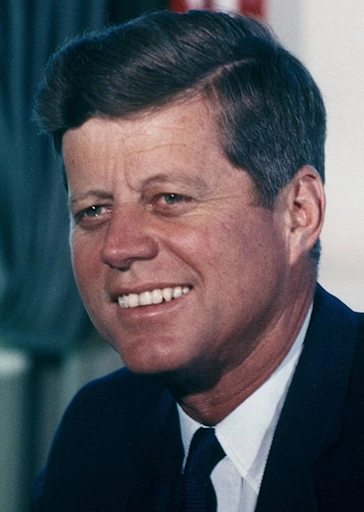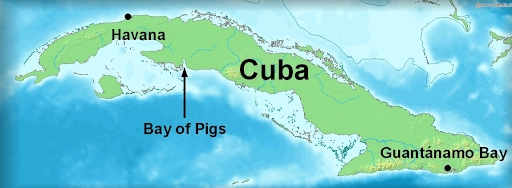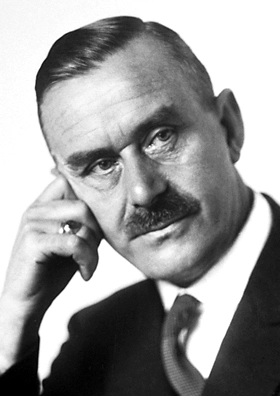After Fidel Castro ousted Cuban strongman Fulgencio Batista, expropriated American economic assets and developed links with the Soviet Union, President Eisenhower authorized the CIA in March 1960 to develop a plan to overthrow Castro. The agency trained and armed Cuban exiles to carry out the attack. Shortly after his inauguration, John F. Kennedy learned of the invasion plan, concluded that Fidel Castro was a Soviet client posing a threat to all of Latin America and, after consultations with his advisers, gave his consent in February 1961 for the CIA-planned amphibious assault.
Launched from Guatemala on April 17, 1961, the invasion force of 1,400 Cuban exiles known as Brigade 2506 landed at the beaches along the Bay of Pigs on the south coast of Cuba. They immediately came under fire. Cuban planes strafed the invaders, sank two escort ships, and destroyed half of the brigade’s air support. Over the next 24 hours, Castro ordered 20,000 troops to advance toward the Bay of Pigs and the Cuban air force continued to control the skies.
President Kennedy authorized six unmarked American fighter planes to help defend the brigade, but the B-26’s arrived late and were shot down by the Cubans. The invasion was crushed later that day. Castro’s military had counterattacked with surprising speed, sinking most of the supply ships, killing over a hundred of the exiles and capturing 1,200. Brigade 2506 was defeated within two days by Cuban armed forces under the direct command of Castro. The Cuban leader used the attack to solidify his power in Cuba and to justify more military assistance from the Soviet Union, including missiles and the construction of missile bases. Kennedy publicly accepted blame for the catastrophic outcome.
Among the State Department officials involved in the Bay of Pigs fiasco were William T. Pryce and Thomas Mann. Both recalled the meetings that occurred before the invasion, the difficulty the State Department had with making a case for its own plan, and reaction to the failed invasion. Charles Stuart Kennedy interviewed Pryce in September 1997, and Joe B. Frantz of the LBJ Library interviewed Mann in November 1968.
To read more about President Kennedy, Latin America, or failed coups, please follow the links.
“There were hundreds of people, perhaps thousands of people, ready to go on this invasion”
William T. Pryce, Special Assistant to the Assistant Secretary for Inter-American Affairs, 1960-1961
PRYCE: At that point I was a special assistant to the Assistant Secretary for Inter‑American Affairs in the State Department, Thomas Mann. I must say it was a unique position because Secretary Mann wanted to have a staff assistant in all his meetings and so he insisted that I get clearances to attend meetings that he had with the CIA, with Defense and others without holds barred. As a result I was involved in the meetings that were leading up to the Bay of Pigs.
There was a very detailed plan developed by the CIA involving an invasion of Cuba from Nicaragua and Guatemala originally. The overall plan was to first destroy Castro’s air fields by having planes take off from a couple of places and bomb the air fields, bomb Castro’s planes on the ground so that the invasion could then take place.

Mr. Mann felt this was not a viable program and he opposed it inside the circles of the government. He wrote a memo to Secretary [of State Dean] Rusk showing why this plan wasn’t the right one. He became very unpopular of course with the Agency, because there was tremendous pressure, frankly. We had built up this huge apparatus that President Kennedy was handed and there were hundreds of people, perhaps thousands of people, ready to go on this invasion and it would be very difficult to call it off.
Mann had two fundamental points. [The first was]…that it probably wouldn’t succeed, it would have great difficulty succeeding without U.S. involvement, and that the U.S. should not be involved… [The second was] that if we did become involved, we should see it through and we should be prepared to use U.S. troops to make it succeed.
He then proposed an alternative plan: if something had to be done we should try to use the OAS [Organization of American States]. It was a very interesting time, because there were people that felt this plan would not succeed.
Another fascinating thing was that this was a covert plan which was bandied about in The New York Times for probably a month before the invasion took place…. One of the interesting things is that, as you probably remember, [U.S. Ambassador to the United Nations] Adlai Stevenson was not privy to what was going on…even though talk about an invasion appeared in The New York Times.
“President Kennedy made very clear that there was to be no U.S. involvement”
I guess it was a question of plausible deniability. What I remember very clearly was that one of the premises was that the [Central Intelligence] Agency had at least one or two, several I think, Cuban pilots that were supposed to take off from the air field, then turn around and bomb it, and then fly off to other places, so the story that this was a Cuban operation would have some plausibility.
Of course that never happened, and I don’t know if that was ever a serious possibility or not, but it was touted as a possibility.
The decision was made to go ahead and go without the people from Cuba, so I think maybe they had a plane that had been in Cuba at one point. I’m recalling now that Stevenson was very much embarrassed in the UN because he made statements which later turned out to be not correct. I also remember that what had happened is that the initial raids did not achieve their purpose; they were only partially successful, but the decision then was to go ahead anyway.…
There were a lot of stories around that at the last minute President Kennedy held back the participation of U.S. forces. My recollection is that that clearly was not the case. President Kennedy at all times made very clear at all discussions that I heard about and certainly in the other discussions, that there was to be no U.S. involvement. This was one of the things that Mann was saying, that if we do this we shouldn’t fail, but it was very clear that the President made up his mind ahead of time that there would be no U.S. participation.
What happened was when the invasion was in trouble, the President did relent to the point of allowing an air cover to cover the beachhead at the Bay of Pigs so that the people there would not be pounded by Cuban air. An air cover was authorized but never a U.S. attack.
I’ve heard pilots talk about it: “I was up there and we were ready to go.” I think that probably lower in the chain of command maybe our U.S. military wanted to go, but there was never, to my knowledge, ever, any thought that U.S. forces would be directly involved.
President Kennedy never called anybody off. He basically refused to have involvement, as he always said he would.
“You should have gone all the way; you should have eliminated Castro”

I should also say one other thing. I remember that at one point…there was a thought that the military said that they never really had a chance to look at the plan, that JCS never had a chance to look at the plan.
I recollect that there was a plan which was signed off on by the Joint Chiefs of Staff. Now what happened was they didn’t vet it through the normal process, so you could say in a sense that the Joint Chiefs had not looked at it in the normal process. But there was a small group of people that did look at it.
They said that there was a reasonable chance of success, again assuming they had the air superiority. This estimate, which was cautious, nevertheless was seen by the Joint Chiefs and was signed, as I remember correctly, and I think I do, by the Joint Chiefs. So they were certainly aware…
He [JFK] accepted full responsibility. He was, I think, very courageous to do that, because he certainly was handed an ongoing process which had been authorized by President Eisenhower and there was a certain inertia there….
Clearly the President was fully briefed, but there was a certain pressure to go forward with the plan….
[The reaction to the failed invasion was] that it was an unfortunate event and that it obviously damaged our prestige to be involved. Some people felt that we should have been involved in such a venture but the greater feeling was that if we were involved, we should have won, we should have made it work.
So there is a combination of people feeling this is intervention, and that certainly was the public position by most countries, that the United States should not intervene in situations like this. A lot of private opinion was that you guys, the United States, if you did something like this you should have made it work, you should have gone all the way, you should have eliminated Castro.
“The President had just taken office…I don’t think he had time to really understand what all the issues were”
Thomas Mann, Assistant Secretary for Inter-American Affairs, 1960-1961
MANN: If you have a strong Assistant Secretary or a strong Ambassador or a strong Secretary of State, there is no problem with control [over non-State Department agencies.] It’s where people abdicate their responsibility that the troubles come. (Mann is seen at left in a portrait by Fred Stein.)
I never had any trouble in controlling any bureau or embassy that I was in charge of, and that goes for the CIA. I think they’re a very valuable service, and their main function is information gathering. If one were to imagine where we would be without the CIA, then I think you’d begin to see things in perspective.
Of course, they’re never able to publicize their successes, so people get a distorted view…But it’s the best intelligence operation, I believe, in the world, and this is something vital to our own security. We simply must know what other countries are doing that affect our vital interests and maybe even our survival. They do a superb job in that.
I think it’s a mistake to get them involved in political action too much. I think, for example, I would never vote for a large-scale covert operation of the kind that took place in the Bay of Pigs, because I don’t think that suits the American character and our political system. I think whatever we have to do we ought to do out in the open and we ought to do with our own forces…
I think it was in September or October just before the elections in November of that year that I was brought in charge of Inter-American Affairs. Now, when I came in there, I learned for the first time — in about September-October — that there was this force being trained to invade, and I wasn’t able to get a decision or a clear idea about whether the new Administration wanted to scrub it or to see it through.
My personal opinion — I left on April 1 — is that what happened was that we fell between the stools and we couldn’t decide one way or the other.
[Planning for the invasion of Cuba] had never gone too far if the Administration had wanted to pull back.

You could disband the force, and that would have been better than putting them on the beach and leaving them there, in my opinion. I think we did the worst thing. We fell between the stools.
I would personally think that, having gone that far, we should have seen it through. I think that it wasn’t a bad plan. If we had seen it through, it would have worked, but that might have required some U. S. support. We were not prepared to do that… I think that we would get respect and support [from other countries] if we did what was right, assuming always that we were acting in a reasonable way and in a lawful way. I think the worst thing we can do is to do what we did at the Bay of Pigs.
I think it was indecision, largely due to the fact that there was a new team there. The President had just taken office… I don’t think he had time to really understand what all the issues were…
I’ve never seen our prestige as low as it was after the Bay of Pigs, not because we helped put the men ashore, but because we failed.
